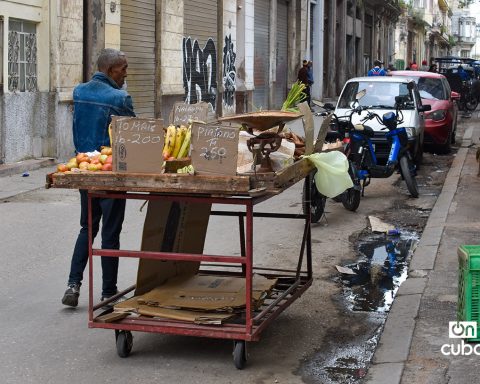The COVID-19 has caused a prolonged impact on life expectancy levels, giving rise to changes in global mortality unprecedented in the last 70 years, according to a study that indicates that countries such as Belgium, Italy or Spain already show a significant although not complete recovery .
Results of this work, for which data collected between 2015 and 2021 in 29 European countries, Chile and the United States were analyzed, are published in the journal Nature Human Behaviorin an article signed by scientists from the Oxford Leverhulme Center for Demographic Sciences, the London School of Hygiene and Tropical Medicine and the German Max Planck Institute for Demographic Research.
Life expectancy at birth is an indicator of a country’s mortality, a kind of “photograph” of the mortality situation in a given year, he explained to EFE demography professor José Manuel Aburto, who details that it reflects the average number of years that a newborn would live if during his life the mortality levels of the year of his birth prevailed.
Thus, according to this new study, despite the signs of recovery in some countries, in 2021 life expectancy in the 29 countries analyzed was still lower than expected if the trends prior to the pandemic had been maintained —with marked geographical differences— , says Aburto, from the London center.
Life expectancy fell in 2020 due to the pandemic, but in 2021, some countries bounced back, while others saw continued losses. @jschoeley @MPIDRnews @jm_aburto @ridhikash07 @OxfordDemSci @radboudumc
Product: https://t.co/XBarwJkUQl
Research briefing: https://t.co/KN9Z1istn2
—NatureHumanBehaviour (@NatureHumBehav) October 17, 2022
Previous global epidemics have seen a rapid recovery in life expectancy levels, but the scale and magnitude of COVID-19, in terms of mortality, stymies claims that it has had no more impact than a disease similar to COVID-19. the flu, recalls a note from the University of Oxford.
Losses in life expectancy during the recurrent influenza epidemics of the second half of the 20th century have been much smaller and less widespread than those observed in the pandemic.
The study that is now published also shows a clear geographical division in terms of life expectancy: while the countries of Western Europe -including Spain- experienced a recovery in life expectancy compared to the strong losses of 2020, Eastern Europe and the United States suffered sustained and substantial deficits.
For example, after eight months of lost life expectancy in 2020, Switzerland saw a recovery of 7.7 months, approaching 2019 mortality levels.
This does not mean, explains Aburto, that this country has returned to the trend before the pandemic, since its life expectancy was growing, so even with the recovery it is still below the levels that would be expected if the COVID would not have emerged.
Something similar has happened in Spain: the country was substantially affected during the pandemic, with a loss of life expectancy of 15 months; in 2021 it would have recovered 7.6 months (according to the latest data from the National Institute of Statistics, life expectancy in Spain that year stood at 83.06 years).
WHO: the world is “in a better position” to end the pandemic, but it has not yet arrived
However, in Eastern Europe, Chile and the United States the data worsened: for example, the magnitude of life expectancy loss during the pandemic in Eastern Europe was similar to that which last occurred during the disintegration of the Soviet Union, say the authors.
This gap between East and West generally reflects higher losses in countries that had lower levels of life expectancy before the pandemic; Bulgaria was the hardest hit country, with life expectancy falling by almost 43 months during the two years of the pandemic.
In addition to pre-pandemic life expectancy, there appears to be an effect of vaccination: countries with higher proportions of fully vaccinated people experienced smaller shortfalls in life expectancy.
The oldest ages, especially those over 80 years of age who had registered the majority of deaths in 2020, benefited from the protection of vaccines and a decrease in excess mortality in 2021.
There was therefore a change in age patterns and excess mortality shifted that year to younger groups, one of the reasons being vaccine protection in the elderly (countries that protected young people and the elderly show better recovery figures) .
EFE / OnCuba.
















